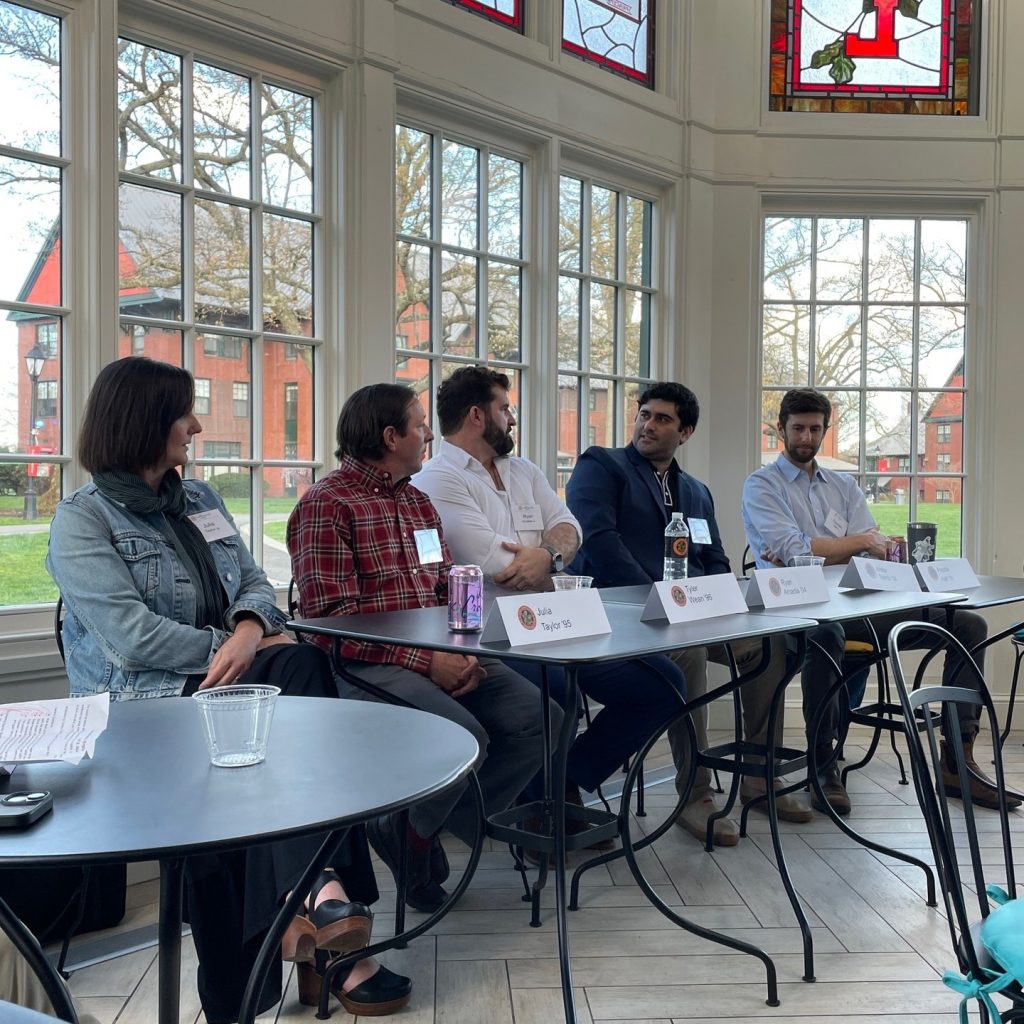
Lawrenceville School recently played host to the Engineering Alumni Panel that brought back five accomplished alumni to share their insights and experiences with current students eager to make their mark in the field. Spearheaded by academic vice president Conan Chen, the event aimed to identify the intersections of architecture and sustainable practice within the engineering field.
The evening began with brief introductions from each panelist, who set the stage for an engaging discussion on their diverse experiences in construction, design, and environmental engineering. Ryan Arcadia ’04, who works as a senior project manager in construction, noted that while each of the panelists may specialize in a certain aspect of engineering, successful projects often need the collaboration of all of these skills. As a manager, Arcadia recognized the many components of the mechanics, planning, and physical construction that work simultaneously to produce a final product are essential, conveying that engineering is a field of partnership. Freddie Hall ’11, a data scientist specializing in efficient energy utilities, shared how his passion for conservation led him to develop innovative solutions for extreme energy usage derived from fossil fuels.
I got the opportunity to speak one-on-one with Arsha Tabrizi ’08, a civil engineer working on the technical design of future bridges. When I asked him about sustainable practices in the planning and building process, he outlined the urgency of prioritizing sustainability by designing according to long-term environmental effects of the project and by utilizing low-maintenance materials resilient to natural disasters. A unique way Tabrizi minimizes the future environmental impact of the bridges in his designs is by ensuring each design incorporates wood in the overall structure. Wood functions as a carbon sink that can store portions of emissions from cars passing on the bridge. Tabrizi’s work is a prime example of the intersection of sustainability within the field of engineering.
What emerged from the discussion was a sense of purpose and recognition that engineering is not just about building structures or designing systems, but about safeguarding the planet for future generations. The alumni urged students to think critically about the impact of their work and to seek out opportunities where they could make a tangible difference. As the evening drew to a close, it was clear that the Engineering Alumni Panel had left a positive impression on all who attended. For Lawrenceville students, it was a glimpse into a future where engineering and passion converge to create a more sustainable world. And for the alumni, it was a chance to inspire the next generation to carry the torch forward in the pursuit of innovation and environmental stewardship. In the end, it was a celebration of the power of engineering to effect positive change in the world.

